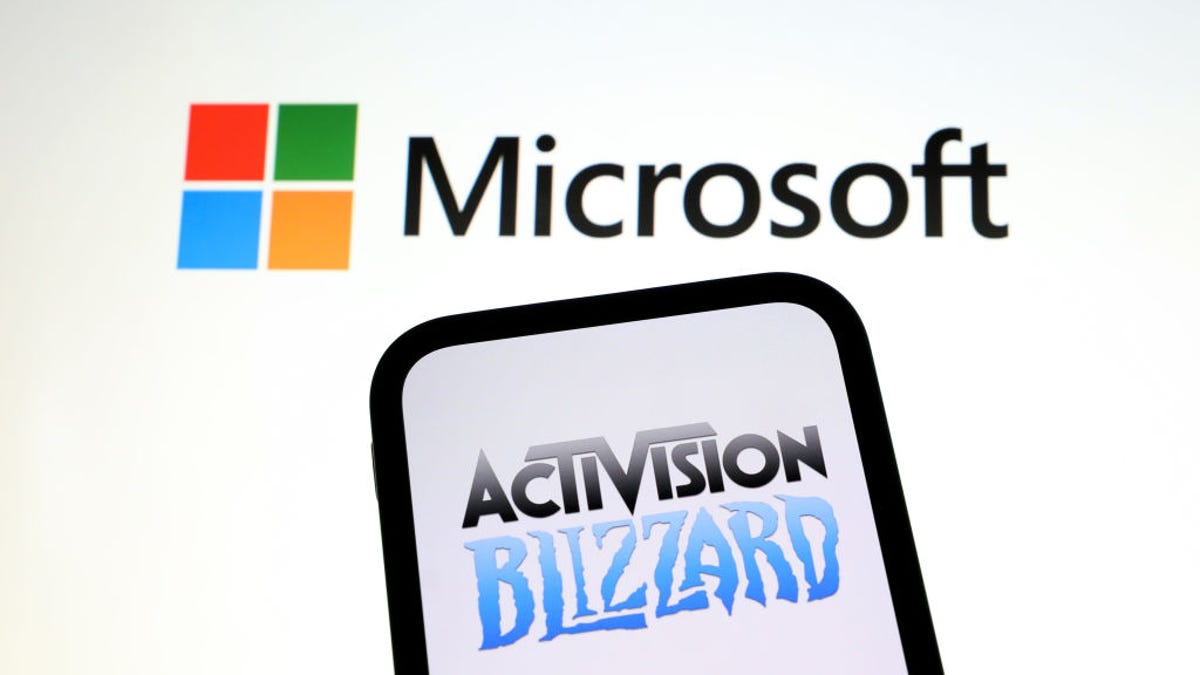Microsoft Offered Sony 'Call of Duty' Subscription Option Before FTC Lawsuit, Report Says
The acquisition of Activision Blizzard is proving to be a tough hill to climb for Microsoft.

Microsoft announced its plans to buy game maker Activision Blizzard in January.
Before the US Federal Trade Commission sued to block Microsoft's $68.7 billion purchase of Call of Duty maker Activision Blizzard, Microsoft reportedly offered its competitor Sony the right to sell military shooter as part of its PlayStation Plus service, Bloomberg reported Monday.
The offer would help Microsoft avoid scrutiny by regulators such as the FTC, which are pushing back against the deal.
Sony and Microsoft didn't immediately respond to a request for confirmation on the offer.
In its lawsuit against Microsoft, the FTC argued that the software giant will "harm competition" among game console makers including Sony and Nintendo.
The FTC said in its complaint that Microsoft had used previous acquisitions, including of ZeniMax Media, to make several high-profile upcoming titles like the space exploration game Starfield and the vampire shooting game Redfall exclusive to devices powered by its software.
"Microsoft has already shown that it can and will withhold content from its gaming rivals," Holly Vedova, director of the FTC's Bureau of Competition, said in a statement. "Today we seek to stop Microsoft from gaining control over a leading independent game studio and using it to harm competition in multiple dynamic and fast-growing gaming markets."
Company executives have spent the past couple months making assurances to public audiences and various government regulators around the world that Microsoft would not abuse its position as one of the largest video game publishers and the maker of the Xbox game console.
"We have been committed since Day One to addressing competition concerns, including by offering earlier this week proposed concessions to the FTC," Microsoft President Brad Smith said in a statement after the FTC's announcement. "While we believed in giving peace a chance, we have complete confidence in our case and welcome the opportunity to present our case in court."
Activision Blizzard CEO Bobby Kotick released a statement Thursday saying, "I want to reinforce my confidence that this deal will close."
The FTC's move against Microsoft marks one of the US government's biggest efforts to take on the tech industry, which has witnessed companies like Microsoft, Apple, Amazon, Alphabet and Meta becoming some of the most highly valued companies on the planet. Amid all that growth, competitors and regulators have been asking whether the tech industry has too much power and whether companies have been acting as monopolies.
Sony and its PlayStation console division have raised concerns about the deal to regulators in the US and abroad, saying Microsoft's assurances to keep hit titles like Call of Duty available for the PlayStation aren't enough.
Microsoft has faced stiff resistance from European Union regulators over this deal. In October, the European Commission asked other game developers for opinions on the acquisition. The commission opened an in-depth investigation into the deal in November, and Microsoft is reportedly ready to make concessions to appease the regulator.
While FTC's action doesn't mean Microsoft's deal is dead, a move like this by a federal regulator can lead to its failure. In 2011, the Department of Justice filed a lawsuit against AT&T when it attempted to merge with T-Mobile in a deal worth $39 billion. AT&T abandoned the deal later that year.



